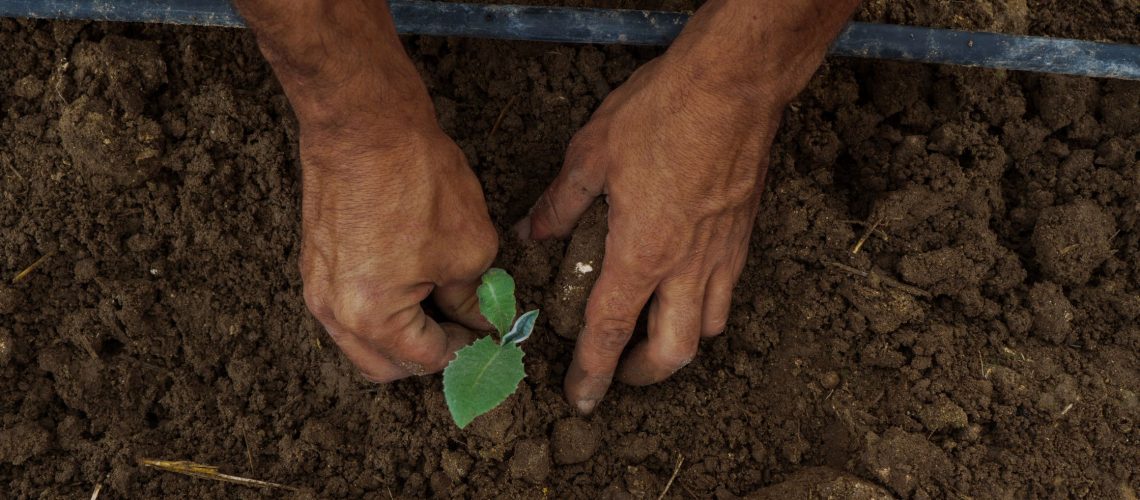To enhance soil health while maintaining productivity, consider adopting no-till farming. By skipping the plow, you allow the soil’s natural structure to thrive, which supports beneficial microbes and earthworms in their work.
Additionally, this method improves your land’s ability to retain water and reduces its susceptibility to erosion. These advantages are just the beginning; there are many other benefits that could transform your perspective on farming.
The Roots of No-Till: A Regenerative Approach
Although modern agriculture has seen numerous innovations, no-till farming stands out as a foundational practice rooted in the regenerative agriculture movement of the 1970s.
Choosing no-till methods embraces regenerative practices that enhance soil health and long-term productivity. By avoiding traditional plowing, you help sequester carbon in the soil, which supports carbon capture and reduces greenhouse gas emissions.
No-till farming also improves water retention, making your operation more resilient during droughts. Ultimately, you’re promoting sustainable agriculture and contributing to ecological balance.
Adopting no-till means you’re not just growing crops—you’re nurturing the land for future generations.
Preserving Soil Structure and Microbial Life
When you adopt no-till farming, you protect the natural structure of your soil, allowing it to remain loose and porous.
By avoiding soil compaction, you create ideal conditions for earthworm activity, which further improves nutrient cycling and breaks down organic matter.
This approach fosters a rich microbial diversity, supporting beneficial bacteria and fungi that promote soil fertility.
As these microscopic allies process organic matter, they release vital nutrients for your crops.
With no-till, you foster a thriving underground ecosystem that enhances your soil’s health year after year, giving your plants a stronger foundation while minimizing disturbance to the living world beneath your feet.
Tackling Weeds Without Tillage
How do you manage weeds when you stop tilling the soil?
Rethink weed management strategies without turning over the earth. Embrace cover crop benefits—planting rye or clover crowds out weeds and improves soil health.
For organic weed control, rely on mulching techniques, such as straw or wood chips, to block sunlight and suppress unwanted growth.
Integrated pest management lets you use natural predators and well-timed crop rotations to keep weed populations in check.
Economic Advantages for Modern Growers
While no-till farming may require new equipment and methods upfront, growers quickly see real economic benefits.
By adopting no-till practices, you’ll notice cost savings from reduced fuel and labor needs, along with a streamlined workflow that boosts labor efficiency.
Equipment investment pays off as soil health improves and yields increase, making your operation more profitable.
Enhanced market competitiveness follows as your produce meets growing demands for sustainability and quality.
Here’s how these economic advantages stack up:
- Lower fuel and maintenance costs
- Higher crop yields over time
- Reduced labor hours per acre
- Long-term equipment investment benefits
- Improved competitiveness in the market
Boosting Water Efficiency and Drought Resilience
Although unpredictable weather patterns and droughts challenge growers everywhere, no-till farming gives you a clear advantage in conserving water and protecting crops.
By adopting water conservation techniques, you help your soil retain more moisture, reducing the need for frequent irrigation. No-till methods improve soil moisture retention, making drought-resistant crops more viable and robust.
You can also implement irrigation efficiency strategies to minimize water waste and lower costs. These climate-adaptive practices ensure your fields remain productive even under dry conditions.
Embracing no-till farming means you’re not just saving water—you’re building true drought resilience into your agricultural operation.
Expanding Opportunities Through Innovative Practices
As you incorporate no-till methods into your farming operation, you’ll find a wealth of opportunities to innovate and diversify your practices. By stepping beyond traditional approaches, you can boost productivity and sustainability.
No-till farming opens the door to integrating innovative soil amendments for increased fertility and adopting sustainable pest management strategies that protect your crops and the environment. Embracing agroforestry integration and biodiversity enhancement can transform your fields into resilient ecosystems.
Plus, technology adoption streamlines monitoring and decision-making, maximizing efficiency and yields.
- Innovative soil amendments
- Sustainable pest management
- Agroforestry integration
- Biodiversity enhancement
- Technology adoption
Harvesting a Sustainable Future with Southwest Florida Service & Supply
Choosing no-till farming is an investment in the long-term health and productivity of your land. However, to fully enjoy the benefits, you need the right partners by your side. Southwest Florida Service & Supply offers extensive expertise in agricultural irrigation, well water systems, trailer repair, and backflow prevention services, providing comprehensive support tailored to your farm’s unique needs.
Our team has decades of hands-on experience, ensuring that your fields remain lush, your equipment stays reliable, and your water sources are protected. We do more than just supply products; we stand alongside you every season, helping you build a richer, more resilient farm for generations to come. Trust Southwest Florida Service & Supply to help you cultivate success from the ground up.

